Related Research Articles

Essex County is a county in the northeastern part of the U.S. state of Massachusetts. At the 2020 census,the total population was 809,829,making it the third-most populous county in the state,and the seventy-eighth-most populous in the country. It is part of the Greater Boston area. The largest city in Essex County is Lynn. The county was named after the English county of Essex. It has two traditional county seats:Salem and Lawrence. Prior to the dissolution of the county government in 1999,Salem had jurisdiction over the Southern Essex District,and Lawrence had jurisdiction over the Northern Essex District,but currently these cities do not function as seats of government. However,the county and the districts remain as administrative regions recognized by various governmental agencies,which gathered vital statistics or disposed of judicial case loads under these geographic subdivisions,and are required to keep the records based on them. The county has been designated the Essex National Heritage Area by the National Park Service.
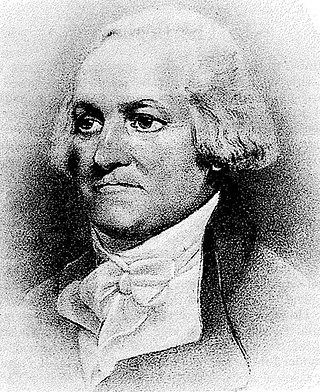
William Tudor was an American politician,military officer and lawyer from Boston. His eldest son William became a leading literary figure in Boston. Another son,Frederic,founded the Tudor Ice Company and became Boston's "Ice King",shipping ice to the tropics from many local sources of fresh water including Walden Pond,Fresh Pond,and Spy Pond in Arlington,Massachusetts.
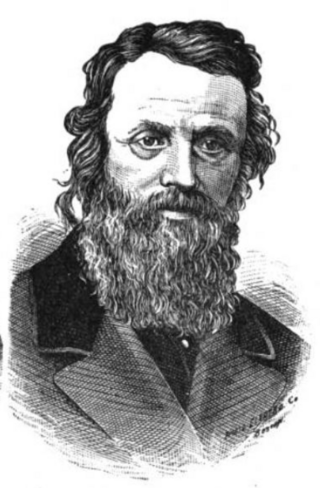
Alonzo Lewis (1794–1861) was a teacher,writer,surveyor,poet,reporter,editor,engineer,and publisher of Lynn,Massachusetts. He was an ardent abolitionist and edited the Lynn Weekly Mirror,the Lynn Record,and Freedom's Amulet. He created the 1829 Map of Lynn on order of the Lynn selectmen and Massachusetts Legislature. In 1838,he created a survey of Lynn Beach and Harbor for the US Congress.

Elihu Burritt Hayes was an American shoe manufacturer,newspaperman,and politician,who served as a member of the Massachusetts House of Representatives,representing the 18th Essex District,and as the 25th Mayor of Lynn,Massachusetts.
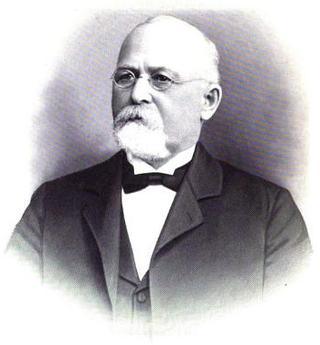
Ebenezer Knowlton Fogg was an American shoe retailer and politician,who served as a member of the Massachusetts House of Representatives,and as a member of the Common Council,Board of Aldermen and as the 24th Mayor of Lynn,Massachusetts.

George Hood was a Massachusetts politician who served in both houses of the Massachusetts legislature and as the first Mayor of Lynn,Massachusetts.
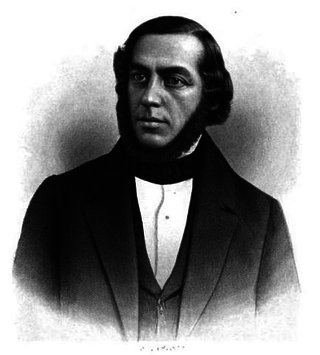
Daniel Collins Baker was a Massachusetts politician who served as the third Mayor of Lynn,Massachusetts.

Edwin Walden was a Massachusetts politician who served as the 13th Mayor of Lynn,Massachusetts.
The following is a timeline of the history of Lynn,Massachusetts,USA.
Joseph Cheever was an American farmer and politician who held office in Saugus,Massachusetts.
Abijah Cheever was an American surgeon and politician from Saugus,Massachusetts.
William Jackson was an English-American pottery manufacturer and politician from Saugus,Massachusetts.
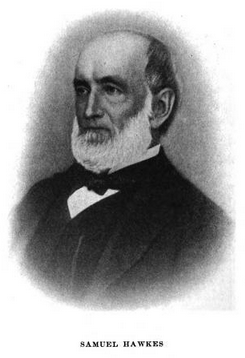
Samuel Hawkes was an American politician who represented Saugus in the Massachusetts House of Representatives as a young man. He spoke at Farmers' Institutes and represented the state at the National Farmer's Congress in Missouri. Hawkes belonged to family and local history organizations and served the Saugus community in several capacities.
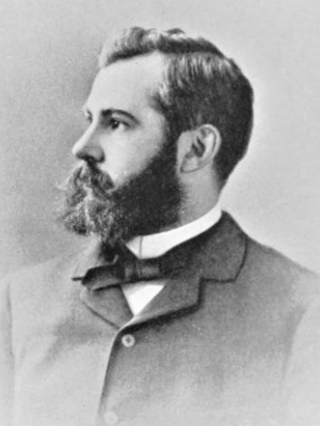
Benjamin Newhall Johnson was an American attorney and historian who owned what would become Breakheart Reservation. He was also President of the Lynn Historical Society for 25 years and the President-General of the Sons of the American Revolution from 1931 to 1932.
Montowampate,was the Sachem of the Naumkeag or Pawtucket in the area of present day Saugus,Massachusetts at the time of the Puritan Great Migration. The colonists called him Sagamore James. He was one of three sons of Nanepashemet,the sachem of the entire region occupied by tribes of the confederation.
Jonathan Makepeace also known as Major Makepeace was an American businessman and political figure who manufactured snuff and held political office in Saugus,Massachusetts.
Wenepoykin (1616–1684) also known as Winnepurkett,Sagamore George,George No Nose,and George Rumney Marsh was a Native American leader who was the Sachem of the Naumkeag people when English began to settle in the area.
William W. Boardman (1771–1847) was an American cordwainer and politician who held office in Saugus,Massachusetts.
Harmon Hall was an American shoe manufacturer and politician who served in the Massachusetts General Court and on the Massachusetts Governor's Council.

Andrews Breed was an American businessman and politician who served as mayor of Lynn,Massachusetts from 1855 to 1856.
References
- 1 2 3 4 5 6 7 8 9 10 11 12 13 Hurd, Duane Hamilton (1888). History of Essex County, Massachusetts: With Biographical Sketches of Many of Its Pioneers and Prominent Men, Volume 1. J. W. Lewis & Company. pp. 422–424.
- 1 2 3 4 5 6 7 8 9 10 11 Alonzo Lewis & James Newhall. "History of Lynn, Essex County, Massachusetts: Including Lynnfield, Saugus, Swampscott, and Nahant". Archived from the original on October 8, 2010. Retrieved April 6, 2013.
- 1 2 3 Atherton, Horace H. (1916). History of Saugus, Massachusetts. Citizens Committee of the Saugus Board of Trade. p. 82.
- 1 2 3 4 Dawley, Alan (1976). Class and Community: The Industrial Revolution in Lynn, Twenty-fifth Anniversary Edition, with a New Preface. Harvard University Press. ISBN 9780674004313.
- ↑ Acts and resolves passed by the general court (PDF).[ permanent dead link ]
- ↑ Bernstein, Paul (1997). American Work Values. SUNY Press. ISBN 9780791432150.
- ↑ First Annual Report of the Board of Managers of the New-England Anti-Slavery Society, Presented Jan. 9, 1833. Garrison & Knapp. 1833.
- 1 2 "Poets, Shoemakers, and Freedom Seekers" (PDF). National Park Service. Retrieved April 7, 2013.
- 1 2 Duane Hamilton Hurd, ed. (1888). History of Essex County, Massachusetts: With Biographical Sketches of Many of Its Pioneers and Prominent Men, Volume 1. J. W. Lewis & Company. pp. 394 . Retrieved April 2, 2013.
- ↑ John Leo Moore; Jon P. Preimesberger & David R. Tarr (2001). Congressional Quarterly's guide to United States elections. CQ Press.
- ↑ Newhall, James Robinson (1836). The Essex Memorial for 1836. H. Whipple. p. 265.